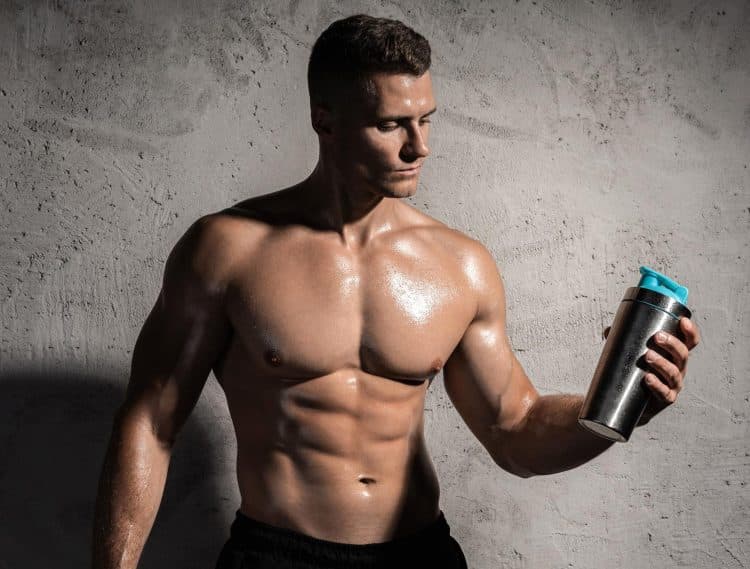Pre-workout supplements aren’t strictly necessary for everyone, but they can offer benefits like increased energy, focus, and workout performance. Whether they are necessary for you depends on your individual fitness goals and how you respond to the ingredients.
As a veteran personal trainer with over seven years of hands-on experience, I’ve witnessed the benefits of a pre-workout supplement and how it can help boost energy levels and focus, delay fatigue, and elevate overall training performance. I understand the unique challenges and goals you may have.
However, there are several nuances with pre-workout supplements that can affect their effectiveness.
A scientific review published in the Journal of the International Society of Sports Nutrition highlighted that multi-ingredient pre-workout supplements can enhance some aspects of performance but stresses the importance of understanding the safety profile of the specific ingredients within the supplement. (1)
In this article, I take you over the intricacies of pre-training powders and help you determine whether they are necessary for your training goals.
What Do Pre-Workout Supplements Claim to Do?
These benefits are what make pre-training supps such a big hit amongst gym-goers:
Energy Boost
Most pre-workout powders contain a hefty amount of caffeine, which can improve your energy levels and focus. Stimulated pre-training supplements can delay fatigue, allowing you to get more done in a short period.
The catch here is that you might build up a caffeine tolerance with time. What once took one scoop to achieve might eventually require two.
“Most people take pre-workout to psyche themselves up so they can exercise harder or to simply feel better and less drained when working out. They hope a pre-workout powder will help boost performance, mainly through improved energy levels and mental focus,” said Yasi Ansari, M.S., R.D., C.S.S.D.
Improved Focus
Caffeine, L-theanine, theacrine, bacopa monnieri, creatine, and Rhodiola rosea are some of the most potent nootropics found in pre-workout supps. Some of my personal training clients report achieving tunnel vision after taking a pre-training powder because of these ingredients.
Greater Strength and Endurance
Pre-workout supplements usually contain a blend of creatine, beta-alanine, and citrulline malate, which can support muscle power and growth and reduce lactic acid build-up in the muscles, boosting overall endurance.
A randomized controlled trial published in the Journal of the International Society of Sports Nutrition found that pre-workout dietary supplements significantly improved anaerobic peak performance in recreational lifters. (2)
Another study found that the pre-workout supplement boosted exercise volume (reps and sets) and some measures of power production while also decreasing feelings of fatigue. (3)
Better Muscle Pumps
Bodybuilders are pump-chasers. A pump is when your muscles feel swollen and full during an exercise. Citrulline malate and nitric oxide increase blood flow and are the ingredients that can lead to muscle-ripping pumps during an intense set.
Since each person is unique, you must experiment with different dosages to maximize the effects of a pre-workout supplement.
Notably, sports nutrition supplements are not controlled or regulated by the FDA. This makes it really important that consumers do their own due diligence when purchasing supplements.
“Third-party testing helps ensure the safety and quality of the product and that the product contains what it states on the label,” Ansari says.
Most pre-workout supplements contain megadoses of certain ingredients to amplify their effect. However, this can have negative effects on your performance and overall health. Prioritize supplements that focus on moderate dosages that don’t blast your central nervous system (CNS).
This makes third-party testing even more important.
“It costs a lot of money for these companies to undergo independent lag testing, which also shows they’re putting time and money into their product,” says Abbie E. Smith-Ryan, associate professor of Exercise Physiology at UNC Chapel Hill’s Department of Exercise and Sport Science and active researcher in sports nutrition and exercise performance.
Pro Tip: Although several research papers stand behind the benefits of pre-workout supplements, you must remember that these studies analyze specific ingredients in moderate dosages and in a controlled setting. Avoid any supplement that is loaded with a particular ingredient, or that makes unrealistic claims.
Downsides of Pre-Workout Supplements
Although pre-workout supplements can boost your overall performance, they have their fair share of disadvantages.
Builds Reliance on Supplements
Make no mistakes; pre-workout supplements are powerful. I have clients who make a trip back home every time they forget to take their pre-training shake.
Dr. Andrew Huberman, associate professor of neurobiology and ophthalmology at Stanford University School of Medicine, cautions against excessive use of pre-workout drinks or stimulants because they can potentially deplete your dopamine levels.
“I never do two workouts in a row where I’m stacking stimulants, nootropics, and loud music,” said Huberman. “Dopamine stacking, as it is popularly known, is the reason why later that afternoon or the next day, you feel like you’re under a cloud and your catecholamine system crashes.” (4)
“You don’t necessarily become dependent on pre-workout supplements. It’s just that you start to wonder whether or not you have the internal mechanisms and motivation to train without these supplements,” said Huberman. “So one tends to use them more and more, and then they have a diminishing effect over time.”
Instead of relying on pre-workout supplements, you should focus on improving your sleep, eating right, and managing your stress levels.
Side Effects
It’s easy to get carried away while using a pre-workout supplement, especially when you start building tolerance.
Consuming a hefty dose of pre-workout supplements can cause jitters, diarrhea, increased heart rate, excessive sweating, and an inconsistent sleep cycle. You must learn to listen to your body’s signals to identify the red flags in the early stages.
Unregulated Ingredients
Exercisers are always on the lookout for the next big thing that can help boost their training performance. Sports nutrition companies exploit this vulnerability by hiring fitness and bodybuilding stars for their ad campaigns.
Many supplement companies hide their ingredient list behind a “proprietary blend” label. They might mention the ingredients but conceal their dosages. Experts believe that most ingredients in these proprietary blends are at minimal dosages and have low to no effects.
Instead of investing in improving the products, these companies spend the money on marketing.
“The rise of Instagram and fitness influencers has led to heavy promotion of pre-workout supplements, as companies capitalize on influencer marketing,” said Jonathan Purtell, a registered dietitian with Lenox Hill Hospital in New York.
The sports nutrition industry is constantly evolving, and new ingredients are introduced each year. This is both good and bad. While we now have an increasing number of ingredients to make supplements better, we lack the scientific data to determine which of these ingredients has the biggest impact on our performance and overall health.
Jessica Crandall, R.D.N., C.D.E., a spokesperson for the Academy of Nutrition and Dietetics, weighed in on the topic too:
“There’s really no good definition of what a pre-workout supplement is—and a lot of companies are just slapping it on products because it’s ‘in’ right now.” — Jessica Crandall
Who Might (and Might Not) Benefit from Pre-Workouts
Pre-workout supplements are not a one-size-fits-all solution. While these powders work, they might not be the right choice for everyone. Here are who should consider and avoid these supps:
Who Should Use Pre-Workout Supplements
These folks stand to gain the most from pre-training powders:
- Competitive Athletes: A pre-workout supp can boost the performance of people training for a specific event or sport. Since the event will likely have a definite date, you are unlikely to build a tolerance.
- Experienced Exercisers: Trainers serious about lifting heavy weights, HIIT, or endurance training can benefit from a pre-workout.
- Those Prone To Workout Fatigue: People who feel drained in the first half of their workouts should experiment with a pre-workout. It can deliver the boost they so badly need.
Who Should Avoid Pre-Workout Supplements
The following people should steer clear of these supps:
- People with Pre-Existing Conditions: Stimulants like caffeine can cause issues for people with high blood pressure, anxiety, and heart conditions. Check the complete ingredient list to ensure there is nothing in the supp that can hamper your overall health.
- Inconsistent Exercisers: If you are someone who doesn’t exercise regularly, you would be wasting your money on a pre-workout supplement. You should ideally add a pre-workout supplement only after you’ve fixed your training and whole-food diet program.
You must carefully read a pre-workout’s label before investing in it. Choose reputable brands and start with the smallest dose possible. Consult your healthcare provider before starting a new training, diet, or supplement program.
Getting the Most Out of Your Workout Without Supplements
Not ready for a pre-workout supplement yet? Here is how you can maximize your gains without using any expensive supps:
- Eat Real Foods: Your diet should primarily consist of whole foods, including lean protein, whole grains, fruits, and vegetables, to fast-track growth and development.
- Prioritize Recovery: Sleep, hydration, sports massages, and self-myofascial release can ensure consistent progress.
- Improve Your Form: Focus on perfecting your technique over lifting heavy. This will maximize muscle fiber stimulation and reduce injury risk.
- Use Natural Energy Boosters: Folks who don’t have the budget for high-end pre-workout supplements can use black coffee. Beetroot juice can also improve endurance and blood flow.
- Sample Pre-Workout Snack: Snacking 30 to 120 minutes before a training session can boost your performance. A banana with peanut butter, a handful of trail mix, or some yogurt make an excellent pre-workout snack.
“We can save our money,” says Dennis A. Cardone, a sports medicine expert and physician in the department of orthopedic surgery at NYU Langone Health. “Regular food will completely suffice. We can get everything we want out of it – our protein, our carbohydrate, our caffeine if we want to – so there’s really no need to supplement a well-balanced diet.”
Crandall recommends forgoing supplements (pre-workouts or otherwise) if they overshoot your recommended daily allowance for any one nutrient.
“At best, super-high doses of nutrients are buying you expensive urine, and at worst, they could contribute to the development of chronic diseases,” she said.
Conclusion
Experts are split on whether a pre-workout supplement is absolutely necessary. While some point to their potential benefits, like increased energy and better muscle pumps, others raise concerns over their side effects, which include jitters, sleep disruption, and crashes.
Whether a pre-workout supplement is necessary will depend on your training objectives and volume. People engaged in high-intensity workouts can definitely use a well-formulated pre-workout supplement for better results. Conversely, hobbyist lifters might not see much benefit from using it.
If you have any questions about pre-workout supplements, drop them in the comments below, and I’ll be happy to help!
References
Fitness Volt is committed to providing our readers with science-based information. We use only credible and peer-reviewed sources to support the information we share in our articles.
- Harty, P. S., Zabriskie, H. A., Erickson, J. L., Molling, P. E., Kerksick, C. M., & Jagim, A. R. (2018). Multi-ingredient pre-workout supplements, safety implications, and performance outcomes: a brief review. Journal of the International Society of Sports Nutrition, 15(1), 41. https://doi.org/10.1186/s12970-018-0247-6
- Martinez, N., Campbell, B., Franek, M., Buchanan, L., & Colquhoun, R. (2016). The effect of acute pre-workout supplementation on power and strength performance. Journal of the International Society of Sports Nutrition, 13, 29. https://doi.org/10.1186/s12970-016-0138-7
- Panayi, S., & Galbraith, A. (2022). Acute Ingestion of a Commercially Available Pre-workout Supplement Improves Anaerobic Power Output and Reduces Muscular Fatigue. International journal of exercise science, 15(6), 455–472.
- Nagatsu T. The catecholamine system in health and disease -Relation to tyrosine 3-monooxygenase and other catecholamine-synthesizing enzymes. Proc Jpn Acad Ser B Phys Biol Sci. 2007;82(10):388-415. doi:10.2183/pjab.82.388
Tip: If you're signed in to Google, tap Follow.













